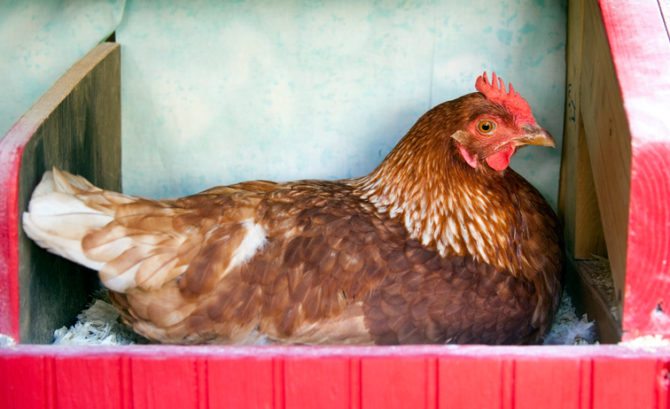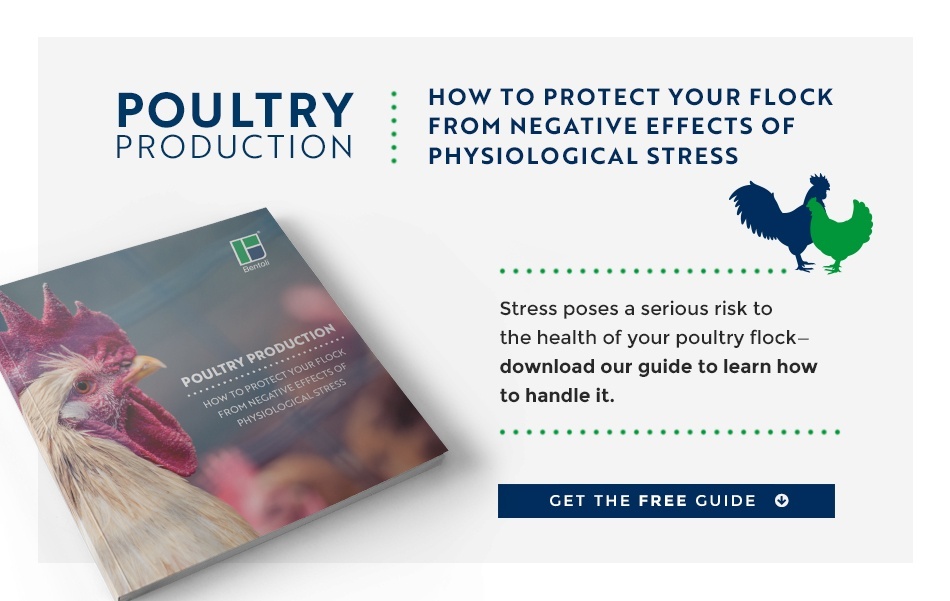
Did you know that one of the most common causes of poultry stress is transportation? Stress has health implications for chickens and can result in lower production levels and higher costs. Some of the most significant physiological symptoms of poultry stress include:
- Weight loss
- Immune suppression
- Increase susceptibility to diseases
Transporting chickens from one location to another is often necessary, but can cause fowl to become sick and—in extreme cases—die as a result of stress. There are four key aspects to figuring out how to transport chickens in a way that minimizes poultry stress and avoids production losses.
Poultry Stress and How to Transport Chickens
Chickens are sensitive, nervous animals, which makes relocation a tricky business. Loud noises, disruptions, turbulence, bright lights, and open spaces can all contribute to poultry stress during the transportation process. However, there are four proven ways you can reduce the risk of stress occurring. Each of these methods requires careful control of the transport environment and causes as little disruption as possible.
1. Create a Healthy Environment
Access to fresh air and water is essential. Chickens do not have sweat glands and can easily become overheated in warm weather, especially when their environment lacks good ventilation. Choose a vehicle that allows for airflow during transportation and make sure each poultry travel crate has breathing slots.
Chickens are more comfortable and calm when they feel air flowing. It’s the equivalent of humans enjoying a cool summer breeze. However, be careful not to choose a transport vehicle that is completely open to the elements. Open-air vehicles cannot shield chickens from potential rainfall, snow, debris kicked up from the road, or overpowering gusts of wind.
Chickens also need to be able to access fresh water every couple of hours, otherwise they will become dehydrated and more stressed. Long trips will also require that the flock is fed every four hours.
Try to create an environment that allows your chickens the airflow, water, and feed they need, with the least disturbance possible.
2. Small, Dark Boxes
While you want your chickens to feel a light breeze, you also need to limit their access to light. Use small, dark crates to reduce stress levels. Check air holes to make sure they aren’t large enough to let in a lot of light. Chickens go into a sleep-like state in the dark, which keeps them relaxed. The darker you can make your crates while still allowing plenty of fresh airflow, the better.
Using small crates that can hold two or three chickens is the best way to move your flock. The snug quarters will prevent movement during transportation and the company of other chickens will keep them calm.
3. Quiet, Smooth Trip
Try to avoid travel routes with loud traffic, lots of construction, and rough roads. Smooth, quiet drives will minimize the chances of your poultry experiencing stress.
Before you begin transporting chickens, reduce the amount of noise they will encounter by placing crates on sound-absorbent surfaces, such as blankets or rubber mats. It’s also a good idea to consider using an insulated vehicle.
4. Prepare Housing
Before you move your flock from one location to another, prepare the new housing facility with the following essentials:
- Fresh feed and water
- Clean bedding (straw or shavings)
- An enclosure that offers protection from predators
You want the environment to feel normal and your chickens to be as content as possible when they arrive at their new location. For the best results, take the time to ensure that everything is ready before transporting your chickens.
If you follow these four steps you will greatly minimize the chances of poultry stress affecting your chickens. Before you transport your flocks, it is also prudent to take precautionary measures and implement a stress management program. This can help prevent the early onset of stress by allowing chickens to reach optimal health.
How a stress management program helps:
When chickens experience stress, their bodies use up their reserves of nutrition trying to restore a healthy physiological balance. Once those reserves are depleted, poultry stress can be deadly. A stress management program uses non-medicated nutritional supplements to restore the body’s reserves with the following five essential nutrients:
- Electrolytes
- Amino acids
- Vitamins
- Minerals
- Probiotics and fermentation products
Using a stress management plan will not only prepare your chickens to survive potential stress caused by transportation, it can also help to revitalize their health and improve production rates.




Thanks, it is very informative